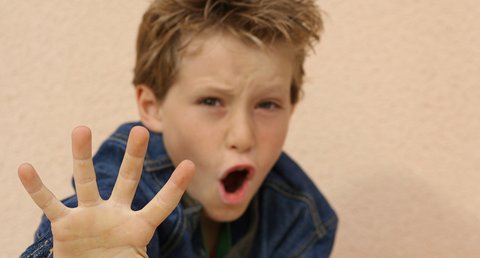While it is common for children with histories of developmental attachment trauma to display both caregiving and control behavior, it is the latter form — angry, manipulative, threatening, and coercive control — that is most typical of children who enter the mental health and child welfare systems.
Therapy with these youngsters and their parents (often adoptive), and consulting with social services and therapeutic foster parents, has led us to the following working assumptions and conclusions:
• The child’s controlling–punitive orientation is a major defense linked to survival: The child truly believes he or she will not survive without controlling and distancing others, especially caregivers. This control strategy is a form of compensation for lack of trust and internal control. Because these children have not learned to regulate their own emotions and impulses effectively, they focus on regulating and controlling their outer world. Also, they have learned survival strategies in previous harsh environments where they did not feel safe. Being defiant and controlling is self-protective.
• A feeling of empowerment accompanies controlling, oppositional, and defiant behavior: Parental caregiving and limit-setting is perceived as a threat, rather than as an opportunity for need fulfillment, learning or love. Efforts to care for or help the child are filtered through the child’s negative working model (negative core believes) and are interpreted as abuse, rejection, or control. When a parent or therapist provides support or shows affection toward the child, the reaction is often an increase in hostile, angry and controlling behavior. These children often misinterpret social and emotional messages.
• Reciprocity in relationships is extremely limited: These children avoid needing others, asking for help, and many forms of positive interaction. They often have difficulty accepting praise, affection, and love. They do not believe caregivers possess nurturing qualities, or that they themselves are worthy of love and caring, because of previous abuse and neglect. Relationships are a “one-way street;” they believe that distancing and controlling others is the only safe way to relate.
• Adoptive parents, foster parents, and mental health professionals are often frustrated when dealing with these children: Many parents are afraid of their children (anxious and fearful about the child’s anger, violence and aggression), and there is typically a history of various treatment failures. Foster parents often request these children be removed from their home, fearing for the safety of other children and/or themselves. Adoptive parents can develop secondary traumatic stress, and often consider out-of-home placement.
• There are both historical and current family factors that contribute to the child’s problems: The child’s family of origin was typically abusive, neglectful, violent, and chaotic, with one or both biological parents having antisocial profiles, severe depression and/or other emotional disorders, substance abuse problems, and histories of maltreatment in their own childhoods. The dynamics of their current family are also problematic. Adoptive parents are commonly angry, depressed and “burned-out.” Adoptive parents may have unresolved family-of-origin issues that are triggered by the child’s behavior. Marital conflict is common because of the ongoing stress of dealing with the child.
• Genetic and biological factors are relevant: There is typically an intergenerational history of biologically- based conditions in the birth families (e.g., unipolar or bipolar depression, severe mental and substance abuse disorders). These conditions contribute to extremely dysfunctional parenting practices(abuse, neglect, abandonment) as well as problematic traits and symptoms in the children.
• Parenting concepts and strategies that are recommended by mental health and social service professionals are often ineffective: Approaches such as time out, reinforcing positive behavior, and verbal communication typically do not succeed in changing the child’s negative attitudes, perceptions or behavior. Parents can lose faith in the mental health and social service systems, and feel helpless and hopeless regarding any positive outcome. Specialized parenting concepts and approaches are necessary to meet the needs of children who have experienced maltreatment, significant losses, and disrupted attachment. Parents must learn to be “healing parents.”



in my experiences their limitation of building relationships with others is one of the most prominent.
Thanks for this article, really insightful